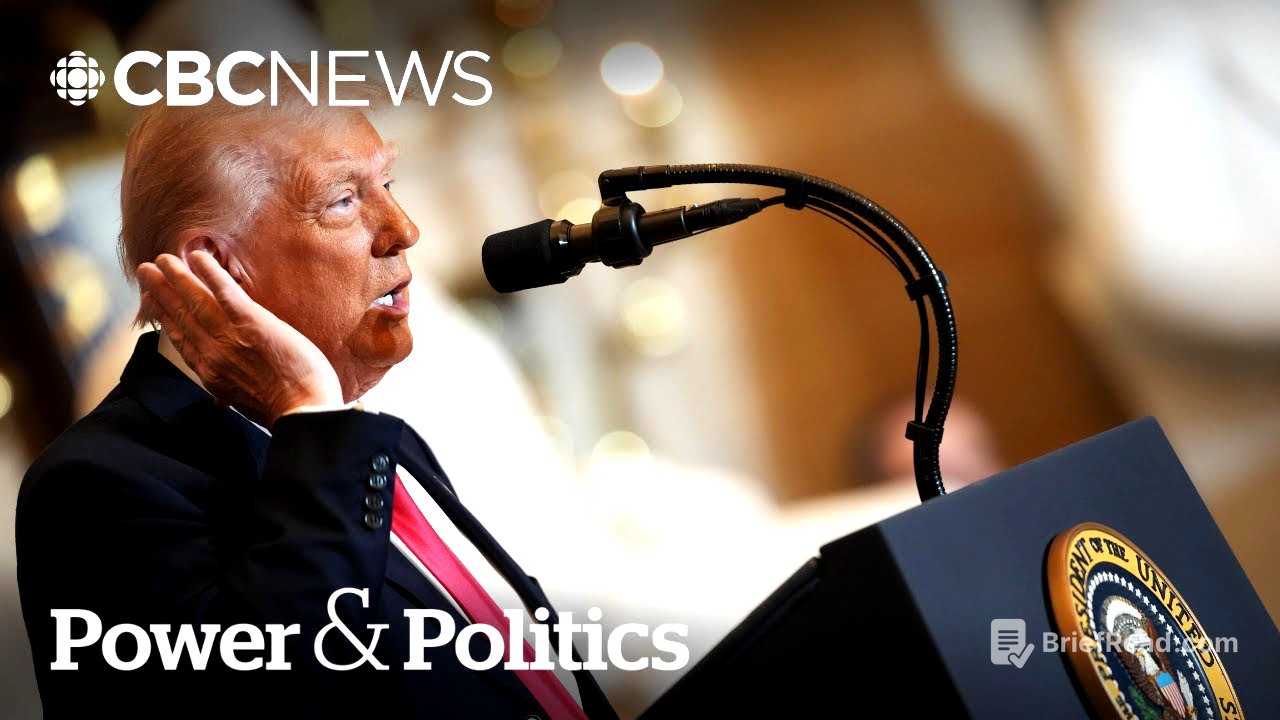TLDR;
This video discusses the potential economic impact of a trade war between Canada and the United States. The video features interviews with former Bank of Canada Governor Stephen Poloz and Goldie Hider, President and CEO of the Business Council of Canada. Poloz explains how a trade war could lead to a significant drop in the Canadian dollar, potentially offsetting the effects of tariffs on American consumers. However, he also warns that such a scenario would negatively impact all Canadians by reducing their purchasing power. Hider emphasizes the need for Canada to focus on strengthening its own economy, particularly by reducing interprovincial trade barriers and investing in areas like critical minerals, oil and gas, and nuclear energy. He believes that these measures will help Canada become more resilient and less reliant on the United States.
- A trade war between Canada and the US could lead to a significant drop in the Canadian dollar, potentially offsetting the effects of tariffs on American consumers.
- However, such a scenario would negatively impact all Canadians by reducing their purchasing power.
- Canada needs to focus on strengthening its own economy, particularly by reducing interprovincial trade barriers and investing in areas like critical minerals, oil and gas, and nuclear energy.
The Potential Economic Impact of a Trade War [0:00]
The video begins by discussing the recent 30-day reprieve on the imposition of 25% duties on Canadian goods by the United States. This reprieve came after Canada agreed to a number of commitments aimed at strengthening border security. While Canada claims to have "won the narrative" in this situation, former Bank of Canada Governor Stephen Poloz argues that winning a trade war will be a much more difficult task.
The Impact of a Trade War on the Canadian Dollar [0:54]
Poloz outlines a scenario where a full-blown trade war with the US could lead to a significant drop in the Canadian dollar. This depreciation would offset the tariff effect on American consumers, as their buying power would remain strong. However, this would also reduce the income of all Canadians, widening the gap in household income between the two countries. Poloz estimates that a double-digit percentage decline in the Canadian dollar, bringing it down to the low 60-cent range, would be necessary to offset the tariff effect.
The Long-Term Economic Consequences of a Trade War [4:04]
Poloz emphasizes that the economic damage caused by a trade war would be significant and potentially long-lasting. He cites estimates of a 5% GDP drop, a 2-3% contraction, and 10% unemployment. He also highlights the potential for permanent damage to the Canadian economy, as companies may reduce investment in Canada and increase investment in the United States to hedge against future trade uncertainties.
Canada's Need for a Growth Strategy [11:04]
Goldie Hider, President and CEO of the Business Council of Canada, discusses the need for Canada to focus on strengthening its own economy. He believes that the recent threats from the US have served as a wake-up call for Canada to address its own internal challenges, such as interprovincial trade barriers and a reliance on the US market. Hider argues that Canada needs to be ambitious and develop a growth strategy that leverages its strengths, such as its critical minerals, oil and gas, nuclear energy, and AI capabilities. He believes that this will make Canada more resilient and less reliant on the US.
The Importance of Reducing Interprovincial Trade Barriers [17:59]
Hider emphasizes the importance of reducing interprovincial trade barriers, arguing that they are a tax on Canadians imposed by Canadians. He believes that these barriers are a significant drag on the Canadian economy and that addressing them could lead to significant economic growth. He cites estimates that 4% of GDP growth is trapped in these barriers and that even halving this figure would have a positive impact on the Canadian economy. Hider believes that the current situation has created a sense of urgency to address these barriers and that real progress can be made in the near future.









